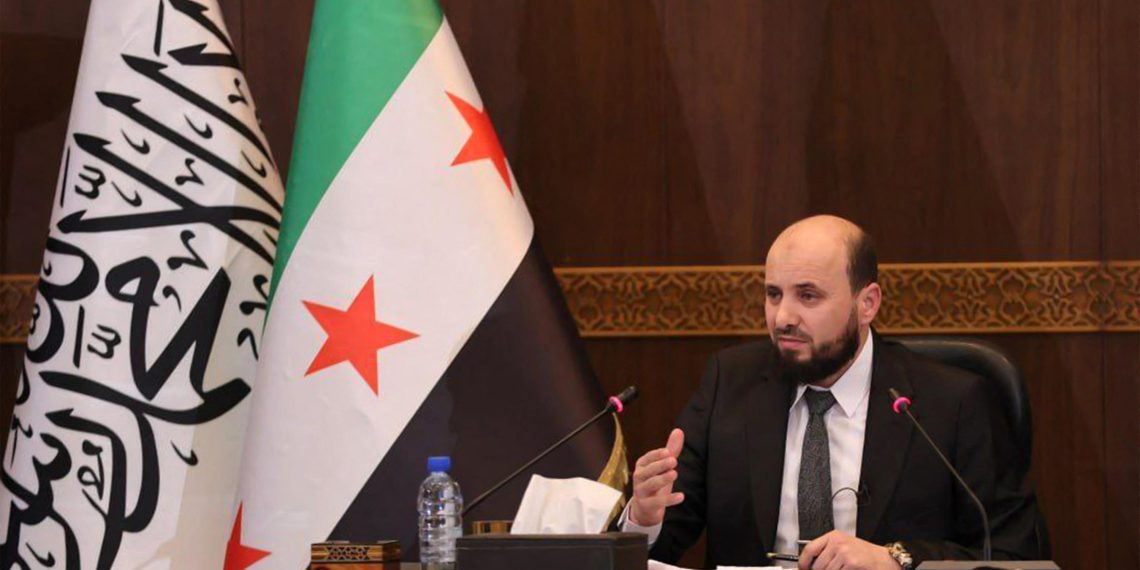Abdul Hakim Bashar, the Vice President of the Syrian National Coalition representing the Kurdish National Council, stated on Saturday that the coalition is engaging, through intermediaries, with the new government, emphasizing the importance of forming a participatory government that includes all Syrian components to lead the transitional phase.
In remarks to a Russian news agency, Bashar explained that consultations are ongoing among parties and national opposition forces to the previous Syrian regime, aiming to reach a consensus on a transitional participatory government.
“Al-Sharaa” Meets Southern Factions to Form Ministry of Defense
He clarified that the current government is focused on managing day-to-day affairs, ensuring the return of displaced persons, and stabilizing the situation, while the ultimate goal is the formation of a government that represents all Syrian factions.
Bashar highlighted that achieving stability and creating a conducive environment could pave the way for calling a national conference, which would result in the establishment of a constitutional committee tasked with drafting a new constitution for the country.
He stressed that the constitution must be consensual, guaranteeing the rights of all Syrian components, leading to a referendum and elections in accordance with the steps outlined in UN Security Council Resolution 2254. He underscored that this process confirms the absence of the current regime in the future phase.
Bashar criticized the one-party rule in Syria, describing it as a proven failure, and affirmed the rejection of its recurrence in the future. He also noted that “Syria is resistant to division due to the significant geographical interconnection between its components.”
He confirmed that there are no separatist tendencies among Syrian factions and forces, emphasizing the importance of maintaining the country’s unity and territorial integrity.
On Engagement with HTS
When asked about the possibility of Syrian parties cooperating with Hay’at Tahrir al-Sham (HTS) and participating in its upcoming steps, Bashar said that the declaration by HTS leader Abu Mohammad al-Jolani of his disassociation from al-Qaeda and Jabhat al-Nusra years ago is being observed cautiously.
He pointed out that the current field actions and political rhetoric of HTS leadership, including statements by Ahmed al-Sharaa, are considered positive so far. However, he cautioned that it is still too early to make a final judgment on these changes.
Consultations with Saudi Arabia and Egypt
Bashar revealed that the coalition is conducting consultations with Saudi Arabia and Egypt, along with other international powers involved in the Syrian issue. He noted that international interactions are taking place “behind the scenes” to monitor the steps taken by the “Salvation Government.”
Abdul Majid Barakat, another Vice President of the Coalition, expressed his dissatisfaction in press statements regarding the absence of any consultation with the coalition in the formation of the new government, describing it as a reflection of the “fait accompli” management by armed factions.
Criticism and Concerns
Sources within the coalition stated that the new government is closely tied to the factions controlling Idlib, making it representative of their interests rather than a comprehensive government for all Syrians.
Politicians have strongly criticized the coalition, arguing that it has “failed to achieve any significant accomplishments since its establishment 12 years ago.”
There are widespread concerns that the lack of coordination between political and military forces could lead to a turbulent transitional phase. Armed factions argue that excluding the coalition “may be necessary to avoid political complications and to focus on maintaining stability in the areas under their control.”
This article was translated and edited by The Syrian Observer. The Syrian Observer has not verified the content of this story. Responsibility for the information and views set out in this article lies entirely with the author.


